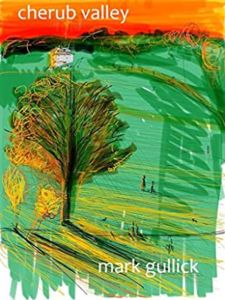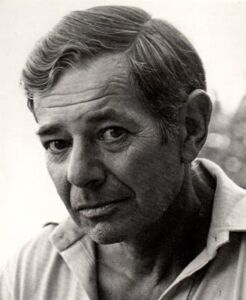1,649 words
What, then, is this that we call existentialism? –– Jean-Paul Sartre, Existentialism Is a Humanism
Sartre formulates the basic formula of existentialism in these words: existence precedes essence. — Martin Heidegger, “What Is Humanism?”
Schools of philosophical thought are usually quite clear in their lines of demarcation. Logical positivists, neo-Platonists, and structuralists may be very different creatures philosophically speaking, but they are united in the fact that their proponents are identifiable by their respective methodologies. This is not straightforwardly the case with existentialism.
Jean-Paul Sartre was famously the only existentialist to refer to himself as such, and he and Albert Camus are generally seen as central figures of this disparate band, along with Friedrich Nietzsche and Martin Heidegger. Walter Kaufmann’s 1956 collection, Existentialism from Dostoevsky to Sartre, shows an extended existentialist family, including excerpts from, among others, Rainer Maria Rilke, Karl Jaspers, Søren Kierkegaard, and Franz Kafka.
Having gathered this rather motley crew together under the rubric of existential philosophy, the opening line of Kaufmann’s excellent introductory essay is a rather different mission statement: “Existentialism is not a philosophy but a label for several widely different revolts against traditional philosophy.”
Existentialism, then, is reactive, even reactionary. Perhaps this explains its appeal to zealous undergraduates, of which I was one in the early 1980s. My first degree was Philosophy with Literature, and the blurring and even effacing of lines between those subjects was a revelation. One course in particular was Modern European Mind, which compared literary texts with the philosophy that often animates them. It was run by the late and decidedly great Professor Anthony Nuttall, who was responsible more than any other tutor for encouraging my fascination with philosophy and where it might be found.
Kaufmann’s introduction gives a short section to each of the featured writers, and emphasizes the disparity of the writers whose texts he has assembled as existentialist: “I can see no reason for calling Dostoevsky an existentialist, but I do think that Part One of Notes from Underground is the best overture for existentialism ever written.”
“I am a bitter man. I am a spiteful man” both opens Dostoevsky’s novella and leads to the heart of the existentialist experiment: the self.

You can buy Mark Gullick’s novel Cherub Valley here.
Kaufmann places existentialism in the context of what it is reacting against, which is essentialism. Existentia and essentia were key terms in Scholastic philosophy, and the latter reflects the central idea of creationism, that human beings are the product of God’s creation and thus the finished article. Existentialism contrasts its position, showing man as changeable and malleable, potentially Protean in his voyage through life. It is surely no coincidence that existentialism bloomed in the century which did more than any other to aid and abet Nietzsche’s Zarathustra with his murder of God.
Christianity has as a founding principle that God’s creation is fixed. Indeed, Darwin’s theory of evolution as the register of mutability — Darwin never states that evolution is progressive — was one of the aspects of the naturalist’s work that most disturbed the British public, along with descent from apes and the universal time frame. I know a Serb in London, a very intelligent man and a superb musician, who believed that the Garden of Eden was 5,000 years old, and would use such creationist arguments as questioning the lack of dinosaurs in the Bible, and asking, if we are descended from monkeys, why there are still monkeys. This rather quaint belief system aside, mankind has evolved a self in a way animals have not.
Thus, existentialism takes literature and philosophy on an interior voyage, “seeing” experience from the vantage point of engagement with life itself — Sartre often used the French phrase engagée — rather than arranged in dry categories. Albert Camus’ famous novella The Outsider (also translated as The Stranger) explodes into a firework display of kinetic verbs during the pivotal scene in which protagonist Meursault murders an Arabic man, taking you to the fated beach and allowing you to see the glint of the Sun on the knife blade. A classic existential moment, but not one appreciated by everyone.

Robert Smith of British post-punk band The Cure told me in 1979 about an incident just before the band took to the stage at a college in their hometown of Crawley. Smith was approached by two well-dressed, polite Arabic students who informed him that the band would not be playing their single “Killing an Arab,” inspired by Camus’ book, that evening. They smiled, Smith said, and could not have been more genial. But the unspoken threat was more than enough to get the song struck off the set list.
For me, Kaufmann’s book was a trip down memory lane, as I first read it 40 years ago. One writer I had forgotten is Karl Jaspers, and I must make up for lost time. Jaspers’ account of his own philosophical development — he was 40 before he took up the discipline — shows him as undeniably an existentialist: “Though one needs knowledge of the concepts that emerge in the history of philosophy, the purpose of such knowledge remains to gain entrance to the exalted living practice of these past thoughts.”
Jaspers also has a sense of philosophers as a community of souls:
The philosopher lives . . . in a hidden non-objective community to which every philosophizing person secretly longs to be admitted . . . Only as an individual can man become a philosopher.
Individuality, the conscious separation of the self from other selves, is the core of existentialism, and the writers assembled here could be said to have released the individual into the world Jaspers describes. Kierkegaard wished the inscription on his tombstone to read simply “That individual,” and with individuality inevitably comes the inner search for the self rather than philosophy’s usual theater of operations in the external, or objective, world. And this search for the self, which I term “autognosis,” is not necessarily easy, but it is a noble profession, one which Nietzsche took utterly seriously:
Sigmund Freud could not have said of Kierkegaard what, according to Ernest Jones, he often said of Nietzsche: “That he had a more penetrating knowledge of himself than any man who has ever lived or was ever likely to live.”
It is natural that this collection will wake the reader to “existential” writing wherever it may occur. Sartre’s short story, “The Wall,” is included here. The tale concerns a group of young men who are about to be executed during the Spanish Civil War. It has a brilliant twist, but it also takes the reader to other places in literature which could only be described as existential. “The Wall,” with its tick-tock approach of death and the inconsequential behavior of those doomed to die, took me back to George Orwell’s 1931 essay, “A Hanging.”
Set in Burma, where Orwell was stationed with that country’s police force, the essay concerns, as its title suggests, the last moments of a condemned man. As he is manhandled to his doom, a small paragraph appears which, if it is not existential writing, I don’t really know what it is:
It was about forty yards to the gallows. I watched the bare brown back of the prisoner marching in front of me. He walked clumsily with his bound arms, but quite steadily, with that bobbing gait of the Indian who never straightens his knees. At each step his muscles slipped neatly into place, the lock of hair on his scalp danced up and down, his feet printed themselves on the wet gravel. And once, in spite of the men who gripped him by each shoulder, he stepped slightly aside to avoid a puddle on the path.

You can buy Greg Johnson’s From Plato to Postmodernism here
The pathos of that little skip by a man minutes from death, one last twitch of humanity in a man about to die, has stayed with me in the decades since I read the essay for the first time. Aside from the proximity to lived experience conjured by Orwell, I recall one other example of proto-existentialism published over 400 years earlier.
Giovanni Pico della Mirandola not only gave the world the girl’s name Miranda, with Shakespeare inventing it for The Tempest almost certainly as an homage to the great Renaissance philosopher, he also wrote Oration on the Dignity of Man, published in 1496, which is as good an introduction to Renaissance philosophy as any. As God addresses man, his creation, in whom existence and essence mingle together:
We have given you, O Adam, no visage proper to yourself, nor endowment properly your own, in order that whatever place, whatever form, whatever gifts you may, with premeditation, select, these same you may have and possess through your own judgment and decision . . . by your own free will, to whose custody We have assigned you, [you may] trace for yourself the lineaments of you own nature . . . We have made you a creature neither of heaven nor of earth, neither mortal nor immortal, in order that you may, as the free and proud shaper of your own being, fashion yourself in the form you may prefer. It will be in your power to descend to the lower, brutish forms of life; you will be able, through your own decision, to rise again to the superior orders whose life is divine.
Not so much condemned to be free, a phrase Sartre would mint, as blessed by freedom. It would take a better historian of religious philosophy than me to locate this as the turning point at which Christian essentialism becomes the existential project, but Mirandola has a part to play in existentialism’s tale.
Existentialism has now taken its place in philosophy’s archives, and its connection with the later movements of structuralism and post-structuralism would need longer treatment. But whether you have read the core existentialist texts or are a newcomer to the subject, Walter Kaufmann’s Existentialism from Dostoevsky to Sartre is a valuable collection of writers who may literally be yesterday’s men, but have much to say to us today.




















